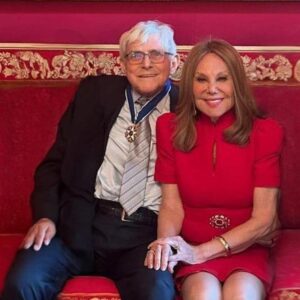A watchdog group is demanding an accreditation institution probe Harvard University over its handling of plagiarism allegations against its former president Claudine Gay — a move that could determine if the Ivy League school continues to receive hundreds of millions in federal funding, The Post has learned.
The American Council of Trustees and Alumni, a Washington, DC-based non-profit, sent a formal complaint this week to the New England Commission of Higher Education, a group that has been accrediting universities for the Department of Education since its founding in 1885.
Harvard’s compliance with NECHE’s standards is
necessary for continued eligibility to receive funding under federal student loan programs, according to the complaint.
The 12-page complaint alleges that the Harvard Corporation, the school’s governing body, “appears to have willfully and persistently operated outside of Harvard’s established procedures” in the case of Gay, who resigned as the college’s president amid her disastrous testimony before Congress on antisemitism and claims of plagiarism earlier this month.
Harvard’s policy on reporting academic misconduct demands that any allegations are reported to school authorities right away, and “strictly forbids retaliation against complainants,” according to the complaint.

The Post was the first to approach Harvard last year about Gay’s alleged plagiarism.
A lawyer acting for the school said that the allegations were “demonstrably false” weeks before the governing board investigated Gay.
The attorney threatened The Post with a lawsuit.
ACTA says that the Harvard Corporation conducted an “irregular” and “opaque” investigation into its former president which veered from its own internal rules on reporting research misconduct and the standards set by NECHE.

“The Harvard Corporation and the former president seem to have established as a matter of public
precedent that they can arbitrarily overrule and circumvent the established, faculty-approved
policies and procedures governing allegations of research misconduct,” the complaint says. “Harvard appears to have shown to the world that its governing board can improvise and change investigative procedures, even from week to week.”




